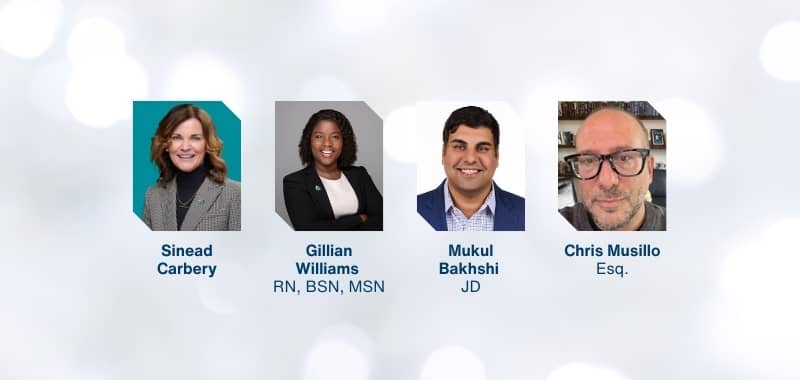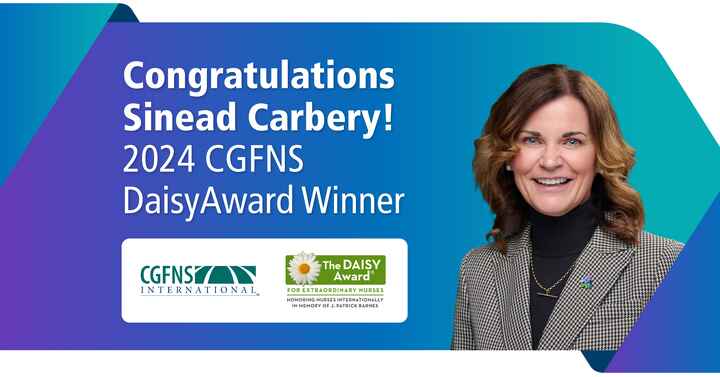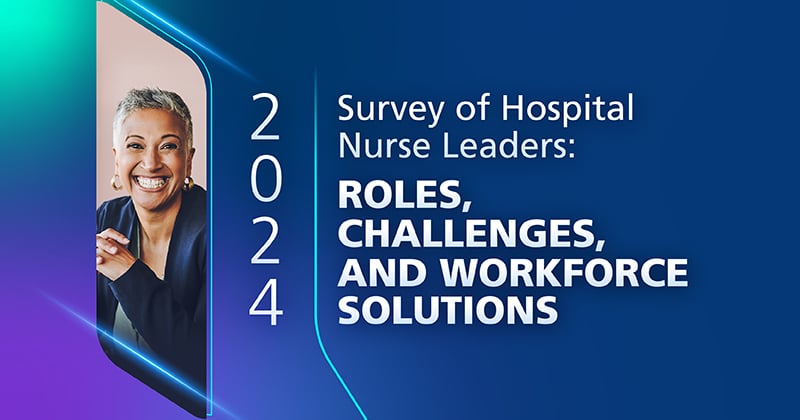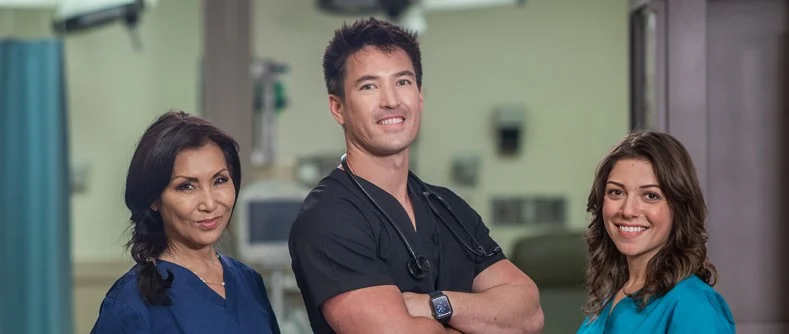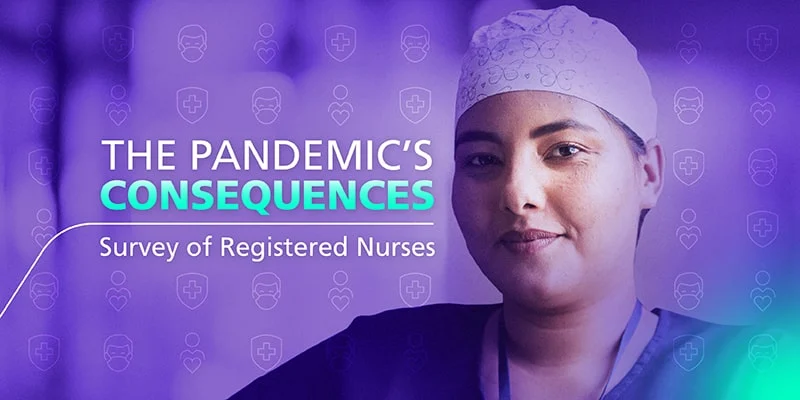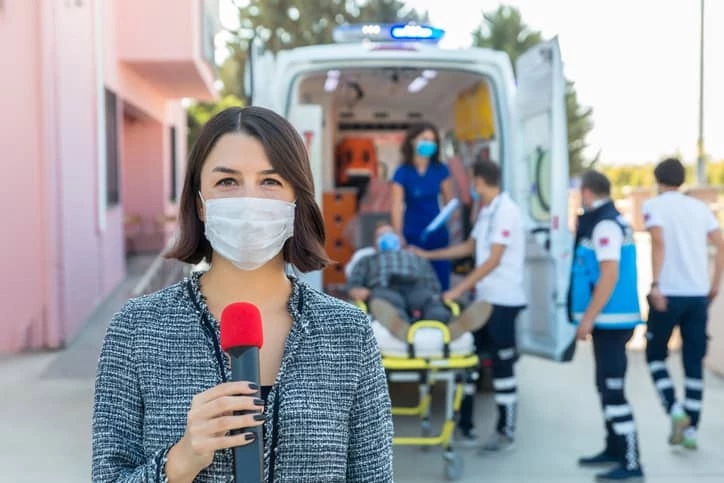
How the Media Influences Perceptions of Nursing
Despite less-than-authentic portrayals of nurses on some television shows, the media positively influences public perceptions of the profession, according to a new study.
“Either it made no difference in terms of respect in the lives of Americans, or the exposure led to more respect,” said the study’s co-author Peter Buerhaus, Ph.D., RN, FAAN, the Valere Potter Distinguished Professor of Nursing and director of the Center for Interdisciplinary Health Workforce Studies at Vanderbilt University Medical Center in Nashville, Tennessee.
“The public has its perceptions of nurses in mind, and [they] are able to separate what they see on television and what they hold and believe about nursing and their personal experiences,” said Buerhaus. “Even when there are images we might not like, it doesn’t seem to knock the patient’s strong favorable impressions.”
Prior to this study, Buerhaus said, little evidence existed about how the public sees nurses through images in the media. The study drew data from the National Survey of Registered Nurses, a mail survey of nurses, and the 2006 National Survey of the Public about Nursing, with telephone interviews of 1,604 people conducted in the spring of 2007.
People who watch medical television shows, such as “Scrubs,” “ER” and “Grey’s Anatomy,” were more likely to recommend nursing or medicine as a career than those who did not view the programs. News stories about nurses helping out in disasters, such as Hurricane Katrina, or in stories about nurses related to patient safety had an especially positive effect.
“These have tremendous opportunities for the thoughtful nurse executive and professional organizations,” Buerhaus said. “Whenever you have a disaster story and your nurses involved, get that out to the media. People like that. It’s good for the profession and stokes that strong relationship with the public.”
When asked to tell the interviewers the first thing that came to mind when they heard the words registered nurse, about one in five respondents in both the nursing and public groups said “care” or “compassion.” Twenty-three percent of nurses said “professional,” while only 8 percent of the public did. However, the public acknowledged the skill, knowledge, licensure, and certification of nurses.
“It’s been the view of some that the idea nurses are about caring for people is harmful and is not the right image to portray to the public,” Buerhaus said. But the study found nurses associate themselves with caring, as does the public. “The good news is the public and nurses also see other dimensions about nursing. It’s not just about caring. [But] that’s not an attribute I see as a weakness.”
Even though the study indicated the public thinks positively about nurses, it has not translated into more people choosing the career. Twenty-five percent of respondents considered a nursing career, and 2 percent were nurses. Among the reasons listed for not pursuing the profession, respondents cited conflicts of time and commitment and financial or educational barriers.
“I think we are on the verge of seeing a dramatic change in all that,” Buerhaus said. “With the national economy going down, at one level there is fear about jobs and economic security.”
Buerhaus expected that, as unemployment rates go up, more people would look at the nursing profession as a good job that seems almost recession proof and offers security.
“We’ve seen in the past when there are downturns in the economy, you get available nurses not working or working on a limited basis increasing their work activities,” Buerhaus said.

The study also found that public respondents were more likely to recommend nursing as a career than nurses, 92 percent vs. 70 percent.
When asked about the main reasons for shortages, the public responded differently than nurses. The public sees nursing shortages as primarily driven by salary and benefits. Fifty-three percent said nurses are underpaid, while only 30 percent of nurses said the nursing shortage was related to salary and benefits. Nurses consistently pointed to working conditions and faculty shortages as causative factors. Yet the public does not seem to understand how a faculty shortage contributes to not having enough nurses at the bedside.
“That’s one of the most important policy implications of this [study], the need to educate the public about the faculty issue,” Buerhaus said. “Thank God, we don’t have to sell the public [the shortage] is an important problem and worthwhile.”
Additional Nursing Resources:
- AMN Passport: Our all-in-one nursing app for booking nursing jobs.
- Nursing Salary & Benefits: AMN Healthcare offers our nurses some amazing salaries and benefits. Find out what's in store for your nursing career today.
- Travel Nurse Licensing: Find out about nursing requirements for all 50 states.
- Exclusive Facilities: AMN Healthcare has relationships with the most sought-after healthcare providers.
- Refer-a-Friend: Make up to $2,000 per referral.
© 2016. AMN Healthcare, Inc. All Rights Reserved.
Latest News
International Recruitment Webinar
Healthcare employers across the U.S. are navigating unprecedented staffing challenges. This exclusive webinar will provide actionable insights into how international clinicians can enhance your
Discover the Vital Role of International Nurses in the U.S.
This white paper is a comprehensive resource to understand the indispensable contribution of international nurses to the U.S. healthcare system.
2024 Nurse Pulse Survey
Explore the full findings of the 2024 Nurse Pulse Survey and gain exclusive access to detailed insights that can guide your strategies and initiatives.
The Ultimate Guide to Strike Contingency Planning
Our “Ultimate Guide to Strike Contingency Planning” equips healthcare leaders with insights, strategies, and tools to ensure continuity of care during labor strikes.
Celebrating Excellence in International Nurse Recruitment:
Sinead Carbery, one of two individuals winning the prestigious 2024 CGFNS DAISY Award.
2024 Survey of Hospital Nurse Leaders
This new survey of hospital Chief Nursing Officers, Chief Nursing Executives and other nurse leaders examines the roles, challenges, and workforce solutions.
Keys to Selecting the Right Partner to Solve Unexpected Staffing Demands
Staffing challenges in healthcare are often unavoidable, but having a plan in place and resources ready can make all the difference for organizations, caregivers, and communities.
2023 AMN Healthcare Survey of Registered Nurses
The AMN Healthcare 2023 Survey of Registered Nurses examines the serious challenges now facing nurses related to career satisfaction and mental health and wellbeing as a result of the pandemic.

